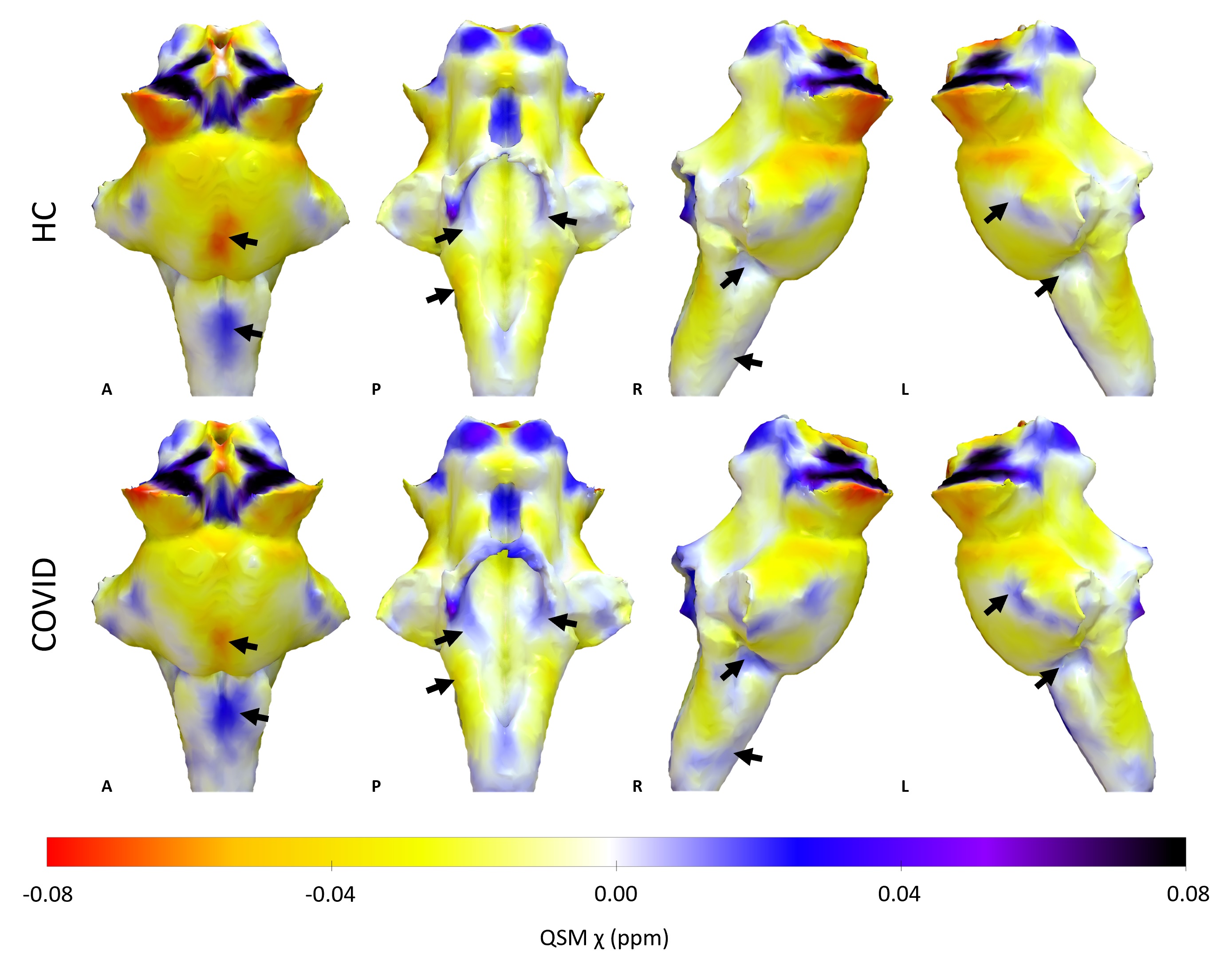Super-powered brain scans are giving scientists a deeper look at how COVID-19 affects the brain, and the findings could explain many of the lasting symptoms that some patients experience. New data shows that COVID can damage the brainstem, a vital control center for all sorts of bodily functions – from breathing to blood pressure.
“Things happening in and around the brainstem are vital for quality of life, but it had been impossible to scan the inflammation of the brainstem nuclei in living people, because of their tiny size and difficult position,” explained first author Dr Catarina Rua of the University of Cambridge, in a statement. “Usually, scientists only get a good look at the brainstem during post-mortem examinations.”
Indeed, autopsies conducted in the early days of the pandemic suggested that the brainstem, the interface between the brain and spinal cord, could be involved in cases of severe COVID-19. Evidence of inflammation was seen, but to get a closer look at what is going on in living people, the usual brain scanners you find in hospitals just won’t cut the mustard.
The magnetic resonance imaging (MRI) machines that are normally used for diagnosing diseases operate with a magnetic field strength of 1.5 or 3 Tesla (T). As a general rule, the stronger the magnet the better the image quality. Some facilities are pushing ahead with plans to build ever more powerful machines, but it’s still very rare to have access to anything above 3T for clinical use.
The team behind the new study, however, were able to benefit from two 7T scanners, housed at the Universities of Cambridge and Oxford. This extra power meant they could see details of inflammatory processes in multiple parts of the brainstem.
3D representations showing areas of abnormality in the medulla and pons (black arrows) in patients who have recovered from COVID vs. healthy controls (HC).
Image credit: University of Cambridge
The 31 patients included in the study had all been hospitalized with COVID-19 towards the beginning of the pandemic, before vaccines were available. Like many patients admitted to hospital with the infection at the time, they commonly reported lingering symptoms like breathlessness, fatigue, and chest pain.
At a median timepoint of 6.5 months post-discharge from hospital, the scans showed evidence of inflammation in the medulla oblongata, pons, and midbrain – all key parts of the brainstem involved in breathing.
“The fact that we see abnormalities in the parts of the brain associated with breathing strongly suggests that long-lasting symptoms are an effect of inflammation in the brainstem following COVID-19 infection,” said Rua. “These effects are over and above the effects of age and gender, and are more pronounced in those who had had severe COVID-19.”
It’s not only the physical effects of COVID that could be explained by abnormalities in the brainstem.
“Mental health is intimately connected to brain health, and patients with the most marked immune response also showed higher levels of depression and anxiety,” explained co-lead author Professor James Rowe. “Changes in the brainstem caused by COVID-19 infection could also lead to poor mental health outcomes, because of the tight connection between physical and mental health.”
While the sample of patients was small, this provides important corroboration of what post-mortem examinations have previously indicated – that post-COVID inflammation can impact the brainstem, which has potential knock-on effects on a wide range of body systems.
Being able to access such powerful scanners right at the height of the pandemic – and even before long COVID was a recognized condition – has provided an unprecedented insight into how the virus can impact the brain.
Rua said, “I was really impressed with how, in the heat of the moment, the collaboration between lots of different researchers came together so effectively.”
The authors suggest that as well as continuing research into COVID-19, their approach could now be applied to lots of other diseases, such as multiple sclerosis.
The study is published in the journal Brain.
Source Link: COVID-19 Damages A Major Brain “Control Center”, Ultra-Powerful MRI Scans Reveal
